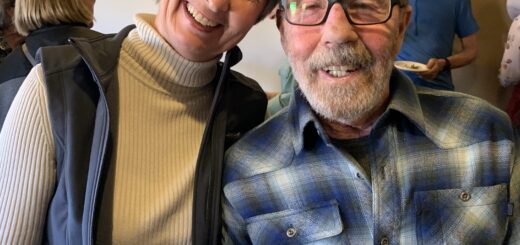In strong communities, people choose kindness and curiosity over anger and hate
The New York Times published a lovely series called the Seven Day Happiness Challenge earlier this month. At a time when many of us were making resolutions for the new year, the series invited readers to assess the quality of their relationships and offered practical suggestions to strengthen them.
There is strong evidence that the key to happiness lies in strengthening one’s relationships. That is the conclusion of the Harvard Study of Adult Development, which analyzed human happiness by tracking three generations of individuals over more than eight decades.
We live in a society that strongly emphasizes competition, materialism and wealth over relationships. We’ve placed a higher value on transactions than relationships and it has resulted in an epidemic of loneliness, chronic stress, depression and anxiety. Is it any wonder that our culture is awash in addiction and suicides? We have been looking for happiness or fulfillment in all the wrong places.
The good news is that we can strengthen our meaningful human connections and live happier lives. We can take actions every day that will promote better mental health and a greater sense of contentment.
The New York Times series explores some practical strategies to get started, starting with making a phone call to someone who you may have lost touch with and sharing what’s going on in your life and learning what’s going on in their world.
Another simple approach is to make it a practice to strike up conversations with people you interact with every day. What I’ve learned over the years is that the face you present tends to be the face you receive. If you are pleasant and curious, most folks will respond in kind. If someone doesn’t respond well, maybe they are having a bad day.
We can also make it a practice to engage in deeper conversations by choosing to tell people we care about how much we appreciate them and why. We often assume people know how we feel and don’t always express those thoughts.
One can also take simple steps to get to know the people we work with or those we come across in our volunteer activities.
Making it a practice to strengthen relationships is not always easy, but research shows that interacting in those environments has a positive influence on our moods and outlook. This needs to be more than a one-time situation. Regular interactions that bring us in contact with others is essential to our well-being.
Strengthening the bonds in our families, with our good friends and expanding the circle of our social circle will pay dividends. Being curious about other people and their lives helps us see others as fellow human beings.
Building relationships in our lives is an antidote to the polarization and anger that has roiled the social fabric of our communities and our country. We don’t have to blindly follow the casual hate and anger that is expressed in social media and is amplified in the national media. We can spend less time marinating in all that toxicity and instead discover the good in people who may have different political views or life experiences. This requires a willingness to be curious and to see the good that exists in others.
Coincidentally, an effort has started in the Wenatchee Valley by a group of interested citizens to celebrate and honor acts of kindness that are done in our midst. This is the kind of community building work that can help lift our spirits and give us greater hope and confidence. Choosing kindness and curiosity is a choice. What would be possible if, as a community, we decided to build a culture of kindness rather than hate. Choosing kindness is a discipline and a practice that would strengthen our communities. You’ll be hearing more about the local kindness initiative in coming weeks and months.


